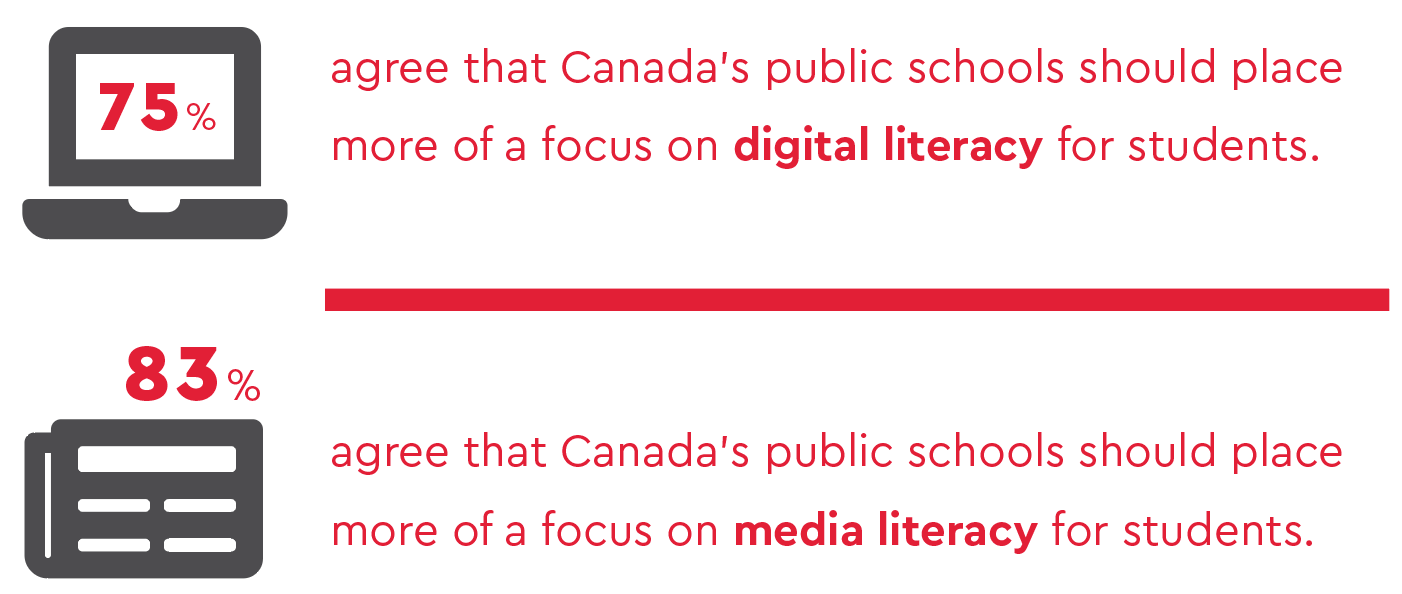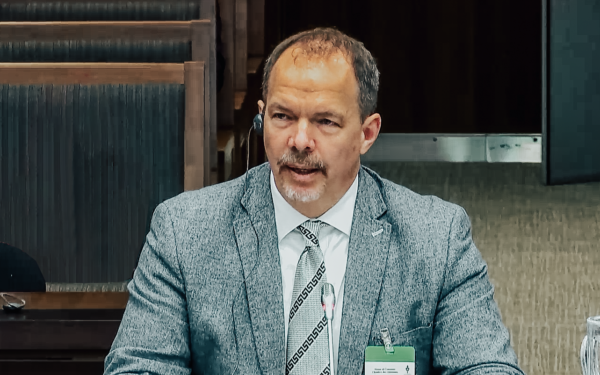CIRA is working with MediaSmarts to equip Canadians to better detect misinformation online.
You’re scrolling through your twitter feed when a story catches your eye that makes you do a double take. You don’t recognize the news outlet but a few of your friends have shared the article, so you assume it must be true.
Sound familiar? If you’ve had this experience, you’re not alone.
More than half of Canadians surveyed in our latest report, Canadians deserve a better internet, said they have been taken in by a fake news item. When thinking about the pervasiveness of online content and news – in sharing it and accessing it – you can’t ignore the rising concern among Canadians about fake news, or fabricated news stories that grossly misrepresent actual events. Three quarters of Canadian internet users say they at least sometimes encounter fake news online, and the majority agree that it’s a problem.
Fake news takes many forms, and can include wholly inaccurate content, news that misrepresents facts or is biased, and old stories passing as current news. It can also include echo chambers, whereby social media sites serve users imbalanced content, largely through algorithms based on their past online behavior, confirming and supporting views the user already holds or leans toward.
How can we stop the influence of fake news?
CIRA and MediaSmarts, Canada’s centre for digital and media literacy, have partnered for nearly a decade on digital literacy projects. The goal is to help educate Canadian kids, youth and families about navigating the internet safely and with the rise of fake news, these skills are becoming even more essential to learn from a young age.
Canadian internet users surveyed agreed that digital and media literacy are important for all Canadians and that training should start in school.

Organizations like CIRA are investing in this important value-add as well. We are funding MediaSmarts to carry out the next phase of foundational research for Phase IV of Young Canadians in a Wired World, which tracks and investigates the behaviours, attitudes and opinions of Canadian children and youth with respect to their use of the internet.
This research will provide the direction for the quantitative classroom-based research instruments for a national survey to follow. Considering how many Canadian adults have been taken in by fake news, arming children with media literacy skills early on is important.
With only a quarter of Canadians fully confident they can recognize fake news online, these investments – both time and money – are much needed.
Test your skills: How well can you detect fake news?
In addition to important research, MediaSmarts creates practical guides and games that you can use to test your own digital literacy skills. Try out Reality Check – a game that teaches you to spot clues like finding where a story originally came from, comparing it to other sources and how to use tools like fact-checking sites and reverse images searches.
Learn more about how CIRA and MediaSmarts are working to improve digital literacy in Canada.
Erica works in corporate communications at CIRA. Her background is in writing and community relations in the non-profit sector. She is a graduate of Carleton University’s journalism program.




